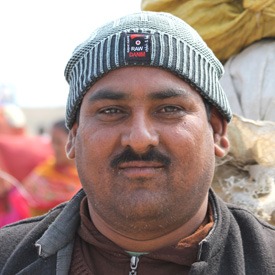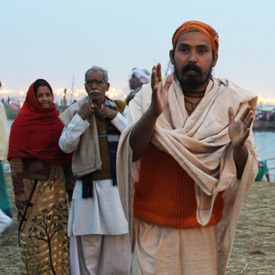Communication in India – Learn How To Do a Head Wobble!
1) Head Wobble

2) Communication in general
India has many languages with Hindi being the most widely spoken but only in the Northern part of the country. English is the second official language and is spoken almost everywhere especially in South India. With this said, communication in India can be challenging and can cause many a headache. The main thing is to be open to understanding people based upon body language and gestures as well as strong accents.
3) Know a few keywords and phrases
Having a few keywords can mean the difference between night and day with your enjoyment and success with communicating in India. I have found that knowing these few words gives me more respect and authority and the locals are generally very happy to see me trying. Knowing these keywords also help with your safety. For example knowing the word for “stop”, “no” and “slow down” can save your life!
4) Have patience
Lastly, I highly recommend having patience while attempting to communicate in India. Sometimes it can be frustrating and really annoying when someone keeps saying “yes” to every question you ask. Having patience allows you to not get angry to quickly and to sort out the situation – eventually. It’s always helpful to find someone who speak your language well and have them be a translator. This has happened to me many times when I’m in some argument with a taxi driver or shop owner when up walks someone who speaks perfect English to explain and interpret for both parties. Another strategy that has worked really well for me is to call an Indian friend, tell them the situation and then pass the phone to the person who you are having trouble with.
5) Common English phrases spoken by the Indians

“Which country?” – the next question after “your good name sir?” is usually “which country?”. Indians love meeting people from far off lands and are intrigued by our travels and fascination with India.
“No problem” – this phrase is often very annoyingly said when there is an actual problem that you are raising but the person on the other end says, “no problem!”. It can also be quite funny if you aren’t in a dire situation…
“Fine sir” – a common phrase when you ask a question like, “how are you?”.
“Hello sir” – random shop owners will often say this as you walk by to try and get your attention to come into their shop. I recommend just walking straight ahead without responding otherwise you’ll likely get mauled by ten other shop owners 🙂
“Yes” – this often means “no” but if someone is trying to sell you something then they will say yes to everything. It can be rather frustrating but it will quickly let you know if the person is trustworthy or not.
“Hello” – on the phone “hello” doesn’t only mean “hello” it also means “I don’t understand”, “are you there”, “what” and “say it again.” I have had a number of hilarious conversations with hotel receptionists where they keep saying hello because they understand my question.
6) An example of funny communication
In 2010 I was staying at a hotel in Tirupati. One morning I woke up and felt like some Kitchari (rice and lentils) for breakfast so I called the room service guy.
I say, “hello, can I please get some kitchari for breakfast”
The man answered, “hello”
I reply, “hello, yes”
He says, “what do you want?”
I answer, “can I get kitchari?”
Him: “hello?”
Me: “Kitchari?”
Him: “Ne, kitchari not possible”
Me: “Okay I will get upma and pongal”
I realized that it seems the meaning of “hello” in India has become “I don’t understand what you’re asking” or “that’s nonsense can you say something else.” 🙂 It can be very frustrating or extremely funny depending how you’re feeling at the time…
Get my FREE Step-By-Step Guide to India Travel
- Learn all my tips for safe India travel
- 39 page full color ebook
- Printable PDF
- Save yourself from getting sick in India





